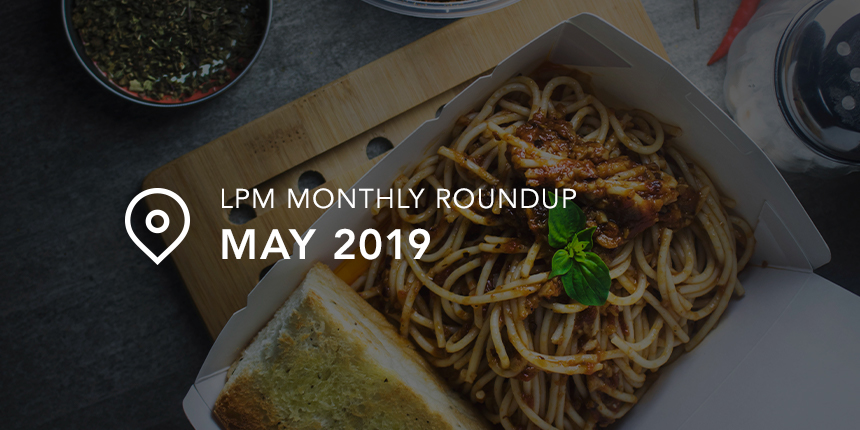This past month, Google made a number of changes to their search engine results pages (SERPs). They’ve been naturally integrated so most users will have no issue adopting them—some may not even notice that this wasn’t the way things always were. Although the changes feel seamless, they are still going to have an important impact on how users interact with their search results. As a marketer, it’s imperative to stay abreast of these changes. Here’s what you need to know about the latest in local search news:
Google Trips comes to desktop and hotel price charts are added to the SERP
In addition to launching Google Flights in 2011 and Google Hotels this March, Google has announced they are bringing the Google Trips mobile-only app to desktop. Google is also continuing to alter the hotel knowledge panels. The latest change was adding the hotel pricing chart to the SERP in addition to a location’s knowledge panel and Google hotels.
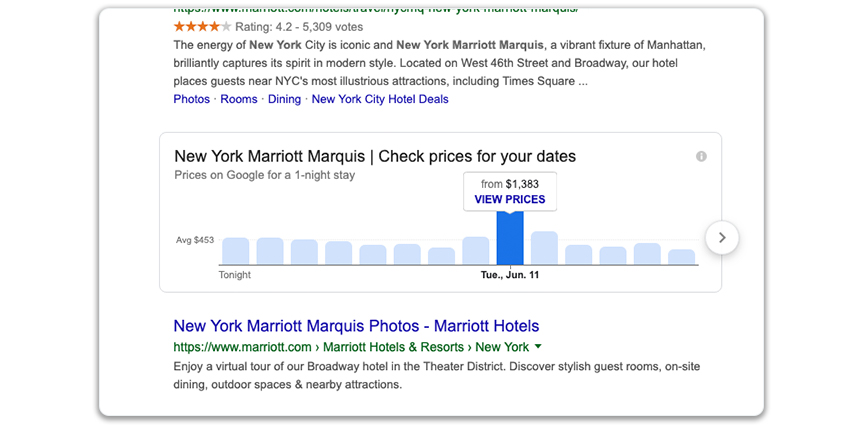
Google is planning to unite all its platforms such as Google Search, Maps, Hotels, and Trips in order to provide a holistic trip planning experience. Given the glut of resources Google can draw from, this could spell big trouble for competing for travel websites such as Orbitz and Kayak. Google has also stated they plan to feature travel articles and will be adding additional features as Trips rolls out onto the desktop. With the platform planning to cover all aspects of travel planning rather than just bookings, Google may work itself into another de facto monopoly by leveraging its existing search platforms.
Hotels have already struggled with many of these new Google features that have created somewhat of a hostile environment where hotels must “Pay to Play”. Brands often bid on rival names and trademarks and with all hotels competing on the same Google searches, it’s becoming harder and harder to rank for organic searches.
Google is adding favicons to all search results and testing them for Maps
You may not have heard of the word “Favicon” before (I know I had to look up when I first came across it) but you’ve definitely seen them. A favicon is that little image you see next to a website’s URL. It is also the image you see when you bookmark a page on desktop or mobile.
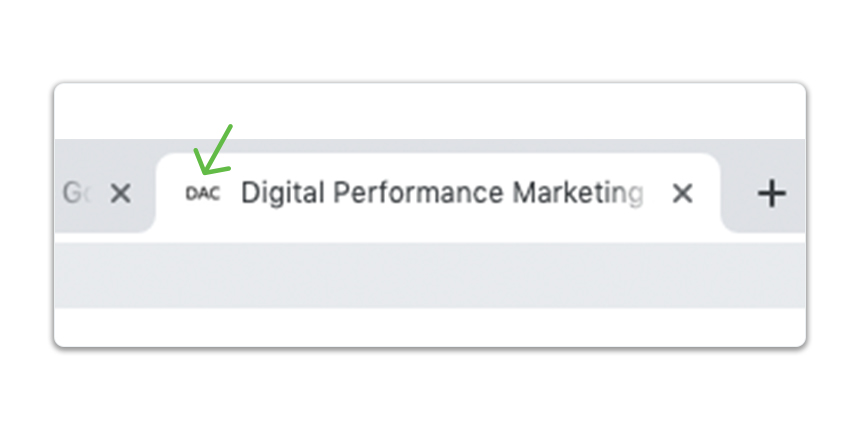
Google is now adding these images to the SERP. This means that users will recognise the favicon and be able to quickly identify the source of their results. Brand identification will have more of an impact on consumers as users’ eyes will be drawn to trusted brand logos. This is especially true for news results and other searches where the user already has a preferred source.
Google has also slightly altered its ad results to coincide with this favicon change. Instead of the green text and ad logo below the blue link, ads will now have standard black text with an “ad” favicon next to the results. The change in colour makes ads less obvious but if users become trained to look at favicons in their results, the “ad” favicon may become as recognisable as the green text of the past.
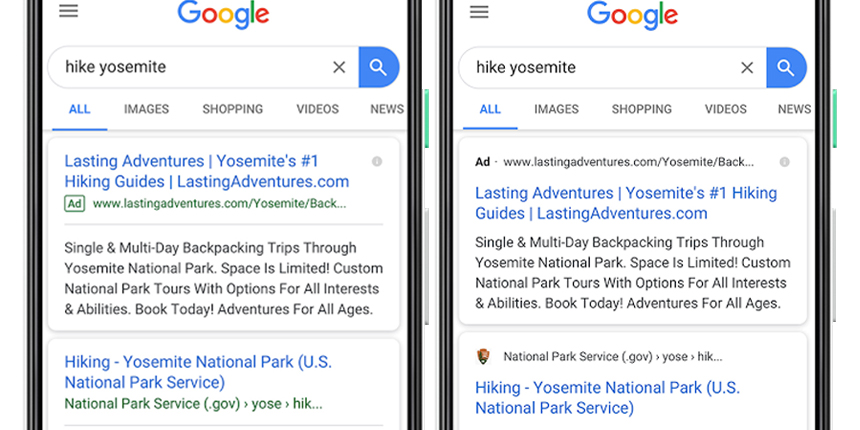
In addition, Google is experimenting with branded pin icons within Google Maps. This has only been a minor test seen by few users but given the favicon change in SERPS, it’s likely Google will try something like this with maps again in the future.
Google adds ability to order food directly from search results
For restaurants already integrated with services such as DoorDash, Postmates, Delivery.com, and others, Google is making it even easier for users to order their food online. A new “order now” button allows users to order food without ever leaving the SERP. Users also have the option to order food with voice by saying “Hey Google, order food from [restaurant].”
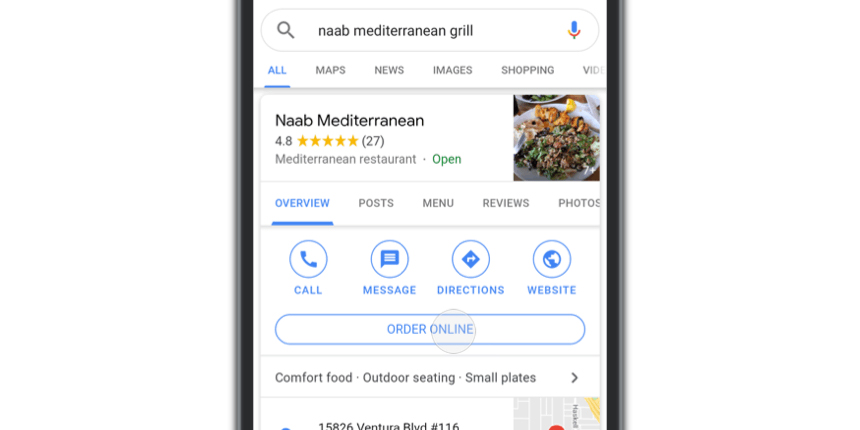
This is great news for restaurants already using Google partnered third-party ordering services. For those using a first-party or non-Google ordering service however, it has stripped them of some competitive advantage.
Google moves to mobile-first indexing by default for new websites
The mobile/desktop split has stabilised at about 60%-40% and Google has moved to mobile-first indexing as the default for all new websites. Google stated the reason for this change is the fact that most new websites are generally designed and built with mobile in mind.
Google rolls out “Calljoy” to assist businesses with high call volume
In non-SERP related news, there is a new product being rolled out by Google’s Area 120 called “CallJoy”. CallJoy is a virtual agent Software as a Service offering that will answer calls, filter spam and help consumers accomplish their designed goals (aka finding out store hours, food ordering, booking, etc..) For businesses with high call volumes at their locations, this Google offering could be a possible solution.
CallJoy and Google Duplex are making it less and less likely that those communicating over the phones will be actual people. While many customers lament having to talk to a machine, once machines are ubiquitous on both the business and customer end, the only time customers will ever need to call themselves will be for complex or security sensitive matters. Well that, or when you need to cancel your cable or internet service.
Need guidance on optimising your business listings? Contact DAC!
